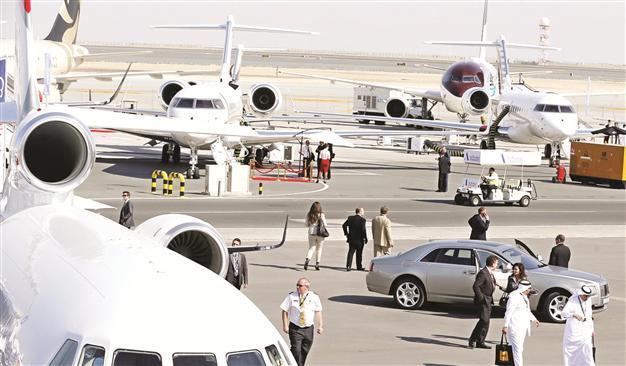Citizenship programs attracting huge interest amid Mideast turmoil
KINGSTON - The Associated Press

AFP Photo
Turmoil in the Middle East and North Africa has led to a surge of interest in programs that allow investors to buy citizenship or residence in countries around the world, mostly in the Caribbean, in return for a healthy contribution or investment.Many are seeking a second passport for hassle-free travel or a ready escape hatch in case the situation worsens at home.
While Hadi Mezawi has never set foot on the Caribbean island of Dominica and has never seen its rainforests or black-sand beaches, he is one of its newest citizens.
Without leaving his home in the United Arab Emirates, the Palestinian man recently received a brand-new Dominican passport after sending a roughly $100,000 contribution to the tropical nation half a world away.
“At the start, I was a little worried that it might be a fraud, but the process turned out to be quite smooth and simple. Now, I am a Dominican,” said Mezawi, who like many Palestinians, had not been recognized as a citizen of any country. The passport will help with travel for his job with a Brazilian food processing company, he said by telephone from Dubai.
Nowhere is it easier or faster than in the minuscule Eastern Caribbean nations of Dominica and St. Kitts & Nevis. The trade is such a booming business that a Dubai-based company is building a 10-square-kilometer community in St. Kitts where investors can buy property and citizenship at the same time. In its first phase, some 375 shareholders will obtain citizenship by investing $400,000 each in the project, which is expected to include a 200-room hotel and a mega-yacht marina. Others will receive passports for buying one of 50 condominium units.
‘The more they fight, the more applications’
“The more they fight over there, the more political problems there are, the more applications we get here,” said Victor Doche, managing director of another company that offers four condominium projects where approved buyers are granted citizenship in St. Kitts, which is less than twice the size of Washington D.C.
It is not clear how many people have taken advantage of the cash-for-citizenship programs. Officials in both countries declined to respond when asked by The Associated Press.
“Why do I have to speak on that?” said Levi Peter, Dominica’s attorney general. But Bernard Wiltshire, a former Dominica attorney general, said there were already around 3,000 economic citizens when he left government about a decade ago. The country now has roughly 73,000 inhabitants in all.
Different tarrifs
“Investor visa” or citizenship programs are offered by many nations, including the United States, Canada, Britain and Austria. But the Caribbean countries offer a fast path to citizenship at a very low cost. The whole process, including background checks, can take as little as 90 days in St. Kitts, and prospective citizens need never live on the islands, or even visit. A foreigner can qualify for citizenship in St. Kitts with a $250,000 donation to a fund for retired sugar workers or with a minimum real estate investment of $400,000. The minimum contribution in Dominica is $100,000.
By contrast, a U.S. program allows visas for a $1 million investment in a U.S. business employing at least 10 people or $500,000 in designated economically depressed areas. The investor can apply for permanent residence in two years, and seek citizenship after five more. Demand in Canada is so great that the country stopped accepting new applications in July 2012.
A Dominica passport holder can travel without a visa to more than 50 countries, while a St. Kitts passport provides visa-free travel to 139 countries, including all of the European Union, providing a big incentive to people in countries from which travel is restricted or whose passports are treated with suspicion.
Critics say the programs undermine the integrity of national passports and have security risks. While there are no known cases of terrorists using the programs, experts say militants could use such visa arrangements for violence anywhere.
Canada imposed visa requirements on Dominica citizens a decade ago after complaining that suspected criminals had used island passports. And in 2010, Britain said it was considering visa requirements for Dominicans, prompting the island to review its 20-year-old economic citizenship program.
St. Kitts opposition leader Mark Brantley said the citizenship program was bringing much needed revenue to the debt-swamped islands, but he said there should be better oversight and public accounting.
“We do not see that sufficient controls are currently in place to ensure that bad people, for want of better language, do not get access to our citizenship,” he said.
















